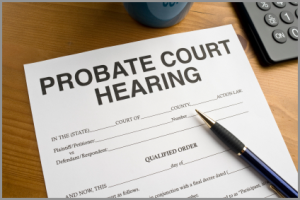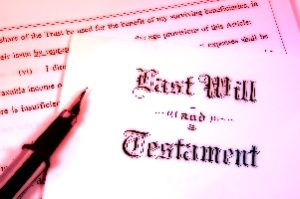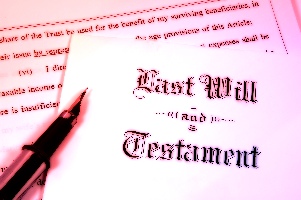 Many people do not have time to prepare a will and it can cause a great many problems. Sometimes even discourse and hardship for those left behind if there is not a proper will prepared. For starters, you have not said how you want your estate divided among your heirs. Sometimes one person may feel that they are somehow more entitled than another.
Many people do not have time to prepare a will and it can cause a great many problems. Sometimes even discourse and hardship for those left behind if there is not a proper will prepared. For starters, you have not said how you want your estate divided among your heirs. Sometimes one person may feel that they are somehow more entitled than another.
Or perhaps you had a conversation with one person about what they would receive upon your demise, but no one else. Once you are gone there is no one around to back up the claim . They look like they are money grabbers or worse. Preparing a Will is relatively easy and solves so many problems.
The steps to prepare a will for most people is a pretty straight forward affair. However we still seem to resist the notion of writing a will. Perhaps it is because we are admitting to ourselves that maybe we are not immortal after all. That maybe we will only live for a set number of years.
Of course we are young and will be around for a long time, so why do we need a will? Wills are only for old people or people with lots of money. So you put it off and before you know it, it is too late. We are too old and cannot think straight or we are in the grave.
Prepare a Will – It is about keeping your life Organized.
Why not make life simple ? If you prepare a will does it not mean you will die tomorrow. It does not mean that you have to give up any rights. Preparing a will just means that you have organized your life and are going to make sure that your loves are looked after and that those items you treasure most are given to the right person.
It does not mean that you need to give them these things now, just that will receive them sometime. Of course there is another school of thought that suggest that you should bequeath items of sentimental value while you are alive and well enough to enjoy the pleasure you give to people.
So what do you need to know to make a will? The lawyer will handle all of the legal stuff and make sure that your will be handled in a professional manner. In addition they will make sure that your will is properly witnessed and sealed so that when it comes time to read it and make decisions, the court will fully accept the will.
This is an important step. We have all heard of wills being challenged, usually when there is a lot of money involved. This is your lawyers job, to make sure that it is iron clad and cannot be challenged.
What are the Main Steps?
The main step for most people is the toughest. That is deciding who will actually receive your assets, how much, and how it will be distributed. In our family we believe that everyone should receive an equal amount regardless of need.
We want our kids to remember us as being fair. But that is just us. Not everyone feels that way and it is up to you to state this clearly in your will. You also need to decide will be the executor.
The executor has an important role in executing your will. Depending on the complexity and the size of the estate this can be a time consuming job or fairly straight forward. Regardless of how much work, it is important that you select someone who you can count on do follow your instructions. They should make good decisions in situations were your instructions are not totally clear.
Once you have decided on your executor or executor’s because some people feel that having two will make the work easier and protect your heirs better, it is time to decide on who gets what. This is the really tough part.
Family Heirlooms
There are some specific things that may be considered family heirlooms that need to be clearly stated regarding who is to receive them. It gets difficult if these are personal items and have a lot of sentimental value. Better for you to decide who they will go to than to have your sons and daughters fight over them after you have passed away. All you need to do is prepare a will.
Once you get through the specific stuff, the rest is relatively easy. Most people will advise their executor to sell the assets. They they will divide up the proceeds according to your instructions. Depending on the size of the estate and the time it takes the executor may charge a fee for this service. Most people just want to recover their costs.
What Happens if You do not have a Will
Well the answer to that question will depend on what country, state or province you live in. Many have a variety of laws to handle these situations. However you can rest assured that someone who is not a family member will get to make the decisions regarding who will receive your assets. They will also charge a fee for this service.
Your local government may also charge a fee for overseeing the entire thing. No one will receive what they wanted. They will tend to receive less, your most personal things will be given out by someone else and most of all, no one will be happy.
If you have concerns in this area, your lawyer can fill you in on the details for were you live and tell you what you can expect to happen.
There is another subject which we will deal with in another post and that is a living will. This is a will which tells your caregivers how you want to be treated when you are too sick to make your own decisions.
In summary, prepare a will, and decide who will be your executor ( ‘s). Who will receive your family heirlooms and how the rest of your assets will be distributed after all bills are paid.







